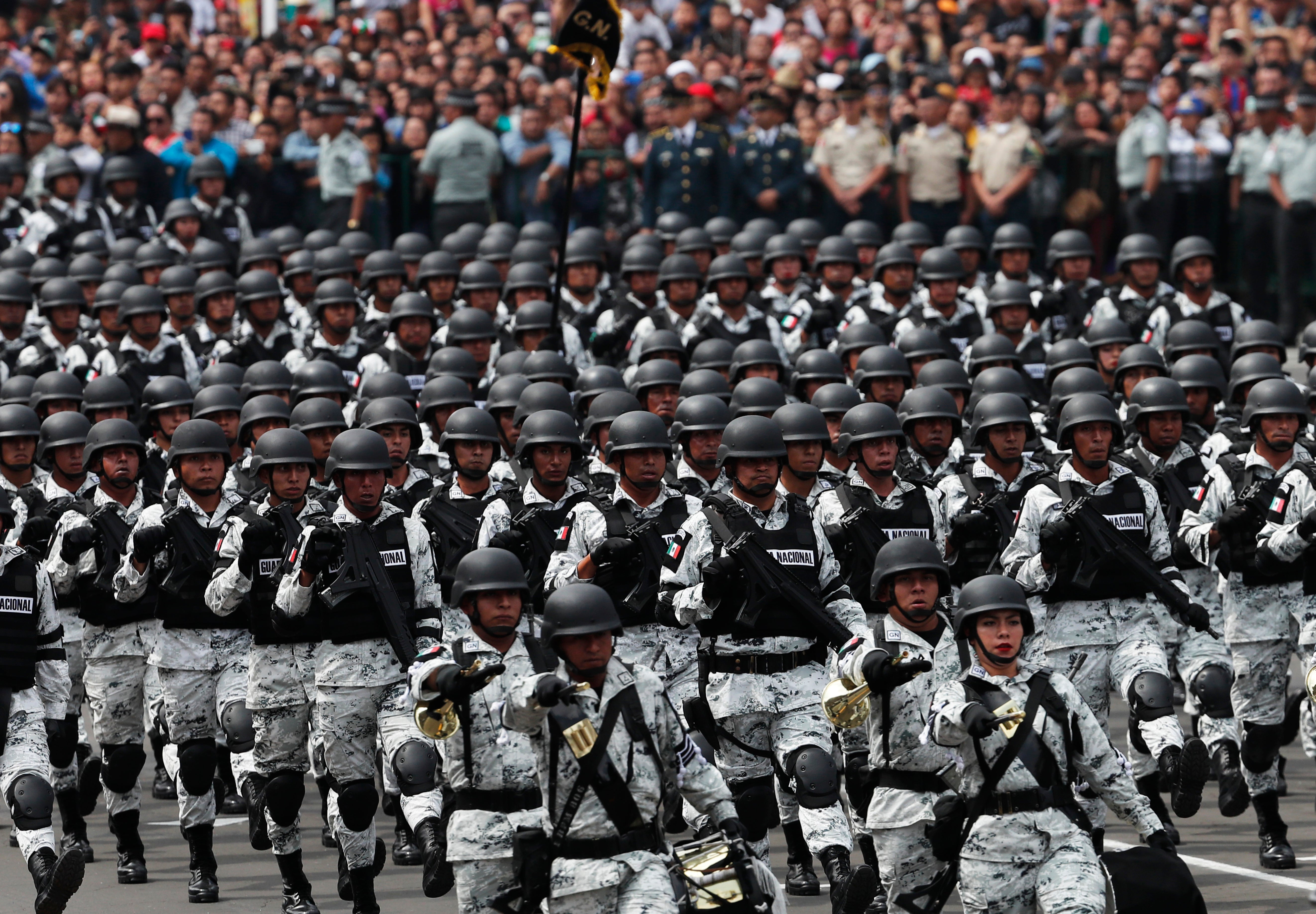Mexico court: National Guard shift to army unconstitutional
Mexico’s Supreme Court ruled Tuesday that last year’s transfer of the newly created National Guard from civilian to military control was unconstitutional

Your support helps us to tell the story
From reproductive rights to climate change to Big Tech, The Independent is on the ground when the story is developing. Whether it's investigating the financials of Elon Musk's pro-Trump PAC or producing our latest documentary, 'The A Word', which shines a light on the American women fighting for reproductive rights, we know how important it is to parse out the facts from the messaging.
At such a critical moment in US history, we need reporters on the ground. Your donation allows us to keep sending journalists to speak to both sides of the story.
The Independent is trusted by Americans across the entire political spectrum. And unlike many other quality news outlets, we choose not to lock Americans out of our reporting and analysis with paywalls. We believe quality journalism should be available to everyone, paid for by those who can afford it.
Your support makes all the difference.Mexico’s Supreme Court ruled Tuesday that last year’s transfer of the newly created National Guard from civilian to military control was unconstitutional, dealing a blow to President Andrés Manuel López Obrador who created the security force in 2019.
The vast majority of the National Guard’s members and leadership came from Mexico’s military, but it was described as a civilian force and placed under the control of the civilian public security ministry. López Obrador created it with a constitutional reform to replace the disbanded federal police.
Last year, Mexico’s Congress passed legislation shifting control of the National Guard to the military. López Obrador had argued then, as he repeated Tuesday, that it was the only way to avoid the corruption that engulfed the federal police.
Legal challenges were mounted immediately, noting that since the civilian nature of the National Guard was enshrined in the constitution, it could only be changed through another constitutional reform. By then however, López Obrador's ruling party and allies no longer had the necessary majority in Congress.
The attempted shift fed criticism that López Obrador was militarizing Mexico.
Troops had already been critical in previous administrations in combatting the powerful and heavily-armed drug cartels. But rather than sending them back to the barracks as López Obrador had once advocated, he cemented their role in Mexico’s public security. He also vastly expanded the military's responsiblities, putting them in charge of ports and customs, as well as his signature projects like building a new Mexico City airport and a tourist train on the Yucatan Peninsula.
While the National Guard could muster the firepower to match the cartels, it did not have the investigative capacity of a civilian police force. Critics have said the National Guard has largely operated as a visible patrolling presence in Mexico’s many insecure areas, but is not dismantling organized criminal capability.
Eight of the court’s 11 ministers ruled the transfer to military control unconstitutional.